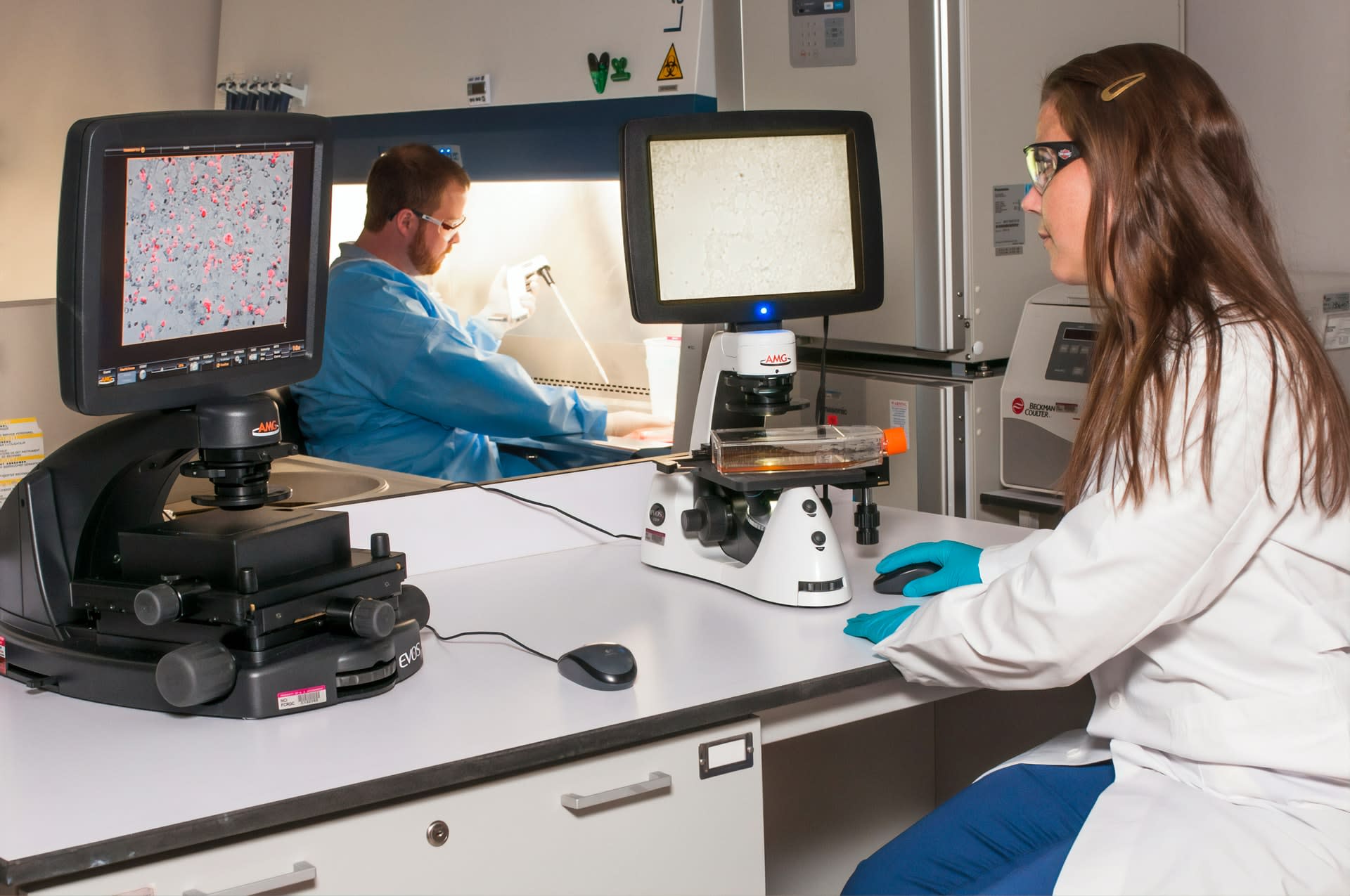What is Synthetic Biology and Why Study It?
In only a couple of decades, scientists have gone from sequencing the first bacterial genome to re-engineering organisms and giving them new abilities and characteristics. The field of synthetic biology has been growing exponentially over the past two decades, especially amid the pandemic, where the field's applications have become particularly vital. If the current investment and technological development are any indications, it should continue to establish itself as one of the leading areas in science in the upcoming years. Here are the main reasons why you should consider investing in this exciting specialization...
- Education

What is Synthetic Biology?
The late 1970s saw the birth of one of the most important landmarks in science: DNA sequencing. However, it was only in 1995 that the first bacterium genome was fully sequenced, and it wasn't until 2000 that the complete genomic sequence for the fruit fly was released for the first time. Since, scientists have been tinkering with DNA sequences, removing, swapping, and adding genomic code to organisms and changing their characteristics. This means of manipulating natural systems through biology and technology is called synthetic biology (or SynBio, for short).
Vitor Martins dos Santos, head of WUR's Synthetic Biology department, explains, "Synthetic biology has similarities with industrial design. Engineers design a new car by improving all sorts of individual components (engine, chassis, wheels, bodywork) and combining them into better cars, and in synthetic biology we combine knowledge of proteins, DNA, micro-organisms and cells into new applications." For Santos, the difference between synthetic biology and biotechnology is that "the purpose of biotechnology is to improve existing life forms. In synthetic biology we take this a step further: instead of looking for new applications for existing organisms, we design new, synthetic life forms."
Current trends
The SynBio market has been growing exponentially and, with it, new trends are established. While its primary application has been in healthcare and life sciences, two other areas have benefited significantly from synthetic biology practices: protective clothing and building materials. Thanks to current techniques, scientists have created fibers, adhesives, and camouflage materials for protective gear. Likewise, new biomaterials are being designed and implemented into the construction industry, making it more sustainable.
It’s the most hyped research topic
Synthetic Biology has only been around for two decades, but it has already become one of the most hyped research areas of the century. The field has taken significant strides in the past years, and this fast progress has attracted more and more companies to invest in the now multimillion-dollar industry of SynBio. While the scientific advance has been impressive, researchers say that technological advancement is the most exciting aspect of the field going forward.
Work with new technology
Synthetic biologists are entirely dependent on technology on a normal workday. A typical SynBio lab will see centrifuges, gene sequencers, and computer screens everywhere. The tech implemented is quickly evolving. "There is still a long way to go," says John Cumbers, founder of SynBioBeta, "but the vision of applying engineering to make biology faster, cheaper and more reliable is starting to become a reality — and a big business."
Improve sustainable farming
Sustainability is one of the top concerns today, with private companies and governments investing a lot of money in sustainable practices. Agriculture is among the most prominent industries, and technological innovation has allowed it to continually advance its means of production, especially the kind of machinery used in crops. However, the intense use of pesticides to keep crops thriving has become a concern for those seeking a healthier diet. With the emergence of synthetic biology, scientists have genetically modified plants and given them all sorts of new characteristics. Applied to agriculture, this technique allows experts to produce pest-resistant plants, reducing the use of pesticides, crop loss, and improving soil preservation.
Future potential
Synthetic biology is rooted in a truly multidisciplinary approach. At the intersection of computer, biological, and social sciences, and engineering, researchers in the field can manipulate natural resources to create solutions for every aspect of social, economic, and organic life. In the past year, we have seen first-hand the fundamental role biotechnology plays in protecting us from biological threats through the rapid development of the COVID-19 vaccine. The possibilities for design and how it can change our daily lives are endless, and its environmental impact can be life-changing. SynBio can manipulate coral to be climate-change resistant, help preserve and even revive endangered species, eliminate disease transmission from mosquitoes, and perhaps even engineer our own cells to fight cancer.
Expanding job market
As one of the main emerging fields in science and technology, the synthetic biology job market has seen explosive growth in the past few years. North America and Europe still dominate the industry, but new hotspots are rising in other regions. Experts predict China and the Asia-Pacific region will take the lead as the primary rising market for SynBio in the near future and economic projections point to the Synthetic Biology industry reaching a global value of over $30 billion by 2026. The range of job prospects for SynBio specialists is wide: besides following the most obvious route of academic researching and teaching, you can start your own company or join a startup as a consultant, advising in how SynBio can transform their business, or as a designer, and become an expert in using biology as a design tool.
Many universities offer it
Because of the extensive uses of synthetic biology, the demand for professionals is at an all-time high. World-leading universities are therefore investing heavily in their SynBio programs, and students now have more options than ever when choosing which institute to attend. If you have a bachelor's degree in a related field -- such as biology, engineering, or computer science -- you're eligible to apply to a graduate program in one of the fastest-growing research fields today.
If you are interested in starting a career in SynBio, you will find no shortage of excellent programs and universities to attend, in whichever continent you prefer. This type of nature-based design allows us possibilities that, not that long ago, we could only dream of. We don’t know yet what the world will look like ten or twenty years from now, but there’s no doubt Synthetic Biology will play a big role in shaping it.
Find your perfect program
Use our search to find and compare programs from universities all over the world!
Biology
Thaís Roberto
Author
Thaís graduated with a degree in Language and Literature and is now pursuing her master's while working as an English teacher and freelance writer. She lives in an inland city in São Paulo, Brazil, and enjoys binge-watching TV, game nights with her friends, and learning how to play any musical instrument within reach
Find a program in these categories


